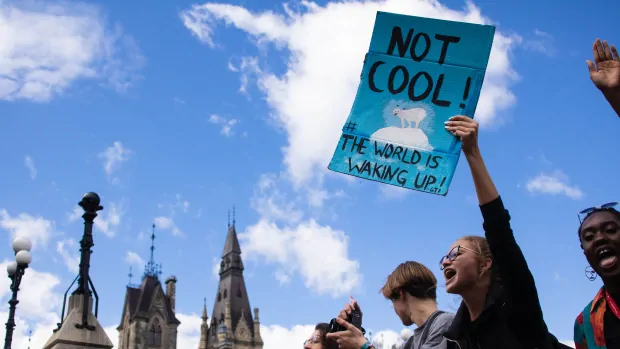Organizers of climate-emergency declaration verifying names after 'Micky Mouse' turns up as signatory

On Tuesday, a paper signed by more than 11,000 scientists declaring a climate emergency was published in the journal BioScience.
The signatories included climate scientists and researchers from other fields, such as microbiology, glaciology and oceanography.
However, at least one name on the list is raising questions: Micky (sic) Mouse from the Micky Mouse Institute for the Blind in Namibia.
When asked how Micky made it on the list, William Ripple, one of the authors of the paper, said in an email that he and his colleagues used a four-step process to check the signatures but that this one seems to have “slipped through our checks.”
He said the vetting process involved:
- Removing duplicate signatures;
- Scanning the list for invalid (fake) names and removing them;
- Removing signatures of individuals who are non-scientists;
- Removing signatures with no associated professional position or institution.
The website hosting the climate declaration was down most of Tuesday and Wednesday because of high traffic and was updated with a message that read: “Viewing signatures is currently unavailable. We are correcting the list of scientist signatories on our website based on an additional validation process.”
The last sentence was later changed to “We are working on the issue.”
Adam, Can you confirm the credentials of Professor Micky Mouse from the Micky Mouse Institute For The Blind that is included in your list of “scientists”?<br><br>Unprecedented propaganda. <a href=”https://t.co/uex6n2hKWn”>https://t.co/uex6n2hKWn</a> <a href=”https://t.co/b5N8SQLkzQ”>pic.twitter.com/b5N8SQLkzQ</a>
—@MRobertsQLD
When contacted earlier this week about the published paper and asked why one person identifying simply as a “student” was allowed to sign, Ripple said the authors do try to remove names that don’t have any institutional affiliation.
“In a large group, there may be a few that fall through the cracks,” he said.
A familiar story
In 1998, there was a similar kerfuffle when the Oregon Institute of Science and Medicine released a petition signed by 31,000 scientists asking the U.S. government to reject the Kyoto Protocol, an international agreement to reduce CO2 emissions signed in 1997.
Several fake entries made it onto that list, including John Grisham, Geri Halliwell and Charles Darwin.
“When we’re getting thousands of signatures, there’s no way of filtering out a fake,” Arthur Robinson, a physical chemist who organized the petition, told The Associated Press at the time.
Kai Chan, a professor at the University of British Columbia’s Institute for Resources, Environment and Sustainability in Vancouver, signed the declaration published Tuesday.
He said it’s unfortunate a fake name made its way on the list but that he’s not entirely surprised. When vetting a list as long as this, there is always a potential for error, he said, no matter how carefully the vetting is done.
“If there’s one error in 11,000 … that’s a pretty low error rate.”
He said more illegitimate names might be discovered but he trusts the credibility of the authors and respects their work.
Hey there <a href=”https://twitter.com/NebulousNikki?ref_src=twsrc%5Etfw”>@NebulousNikki</a> - did you by chance do due diligence in your reporting and actually go through the scientists names on the list that is linked in the sup material? 😀 <br><br>Mickey Mouse… Albus Dumbledore and many more!<br><br>Check it out for yourself: <a href=”https://t.co/PgGtoyPiij”>https://t.co/PgGtoyPiij</a>
—@ianhughscott
Credentials questioned
When the Micky Mouse revelation surfaced on social media, some people started questioning not just the names but the professional credentials of some of the signatories.
Malcolm Roberts, a senator with the far-right One Nation party of Australia, tweeted that among the Australian scientists who signed were “a naturopath, a hypnotist, an industrial designer, a commercial business analyst, and a psychologist.”
Does Adam realise that amongst the Australian “scientists” declaring a climate emergency are a naturopath, a hypnotist, an industrial designer, a commercial business analyst, and a psychologist?<br><br>Unprecedented propaganda! <a href=”https://t.co/aK5EB14lp9″>https://t.co/aK5EB14lp9</a>
—@MRobertsQLD
For Chan, the focus should be not on the error but the message of the original letter.
“If we don’t act soon, the impacts [of climate change] on people and on the biosphere are going to be outside anything we’ve ever seen before, and people need to hear that,” he said.
“It’s tough, the fact that this one egregious and kind of funny error … is going to have the impact that it is, that it’s going to get news [coverage] almost as much as the climate emergency letter did in the first place.”





